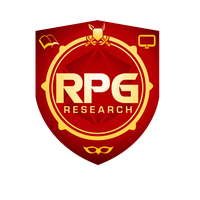Why "waste" so much time discussing the past?
A historical context is important in being prepared for any potential “push back” that may sometimes occur because of many inculcated conceptions regarding role-playing gaming and gamers.
Even as recently as 2019, we have run into many settings and people who still believe the inculcated negative stereotypes and myths about role-playing gamers and games.
Outside of the geek culture "bubble", the majority of people need to be educated about the myths and realities of role-playing games. We run into hundreds of parents a year worried about the "dangers" of their child participating in a role-playing game program. We are usually able to assuage most of these concerns if given the chance to present our methodical approach to these discussions.
We literally have to spend most of our initial presentation when we first approach new clients outside of fandom, addressing their concerns that role-playing games / Dungeons & Dragons are dangerous or inherently evil.
I kid you not, this is still a VERY SIGNIFICANT issue even in 2019!
Examples in just 2018 and 2019 include presentations at public school districts, libraries, professional therapeutic & medical conferences, social workers (see the 2017 survey), rehabilitation centers, hospitals, modern day "orphanages", prisons, and much of the general public outside of the fandom community bubble. Every subculture has its own internal bubble of in-group acceptance, that often are not shared in the out-group populations.
We often run into those in the gaming community who do not understand why we still "waste time" addressing these issues. And when speaking to the gaming community, it is preaching to the choir, so we usually don't need to spend much time on such issues at conferences, but in training people they need to have the facts at their fingertips to prepare themselves for the heavy resistance outside of the gaming community that they will run into bring RPGs to other communities.
We have found that if we do not address these issues head-on and up-front, prospective clients will not be able to listen to the rest of the information we provide, and that it is literally the difference between getting acceptance for the RPG program or rejection of the program.
Once the methodical approach is used, then excellent progress can be made moving forward.
Reference
Christian Gamers Guild FAQ - Frequently Asked Questions by Christians about Role-playing Games
2019 - Mother to child: "Those kinds of people kill people" (role-playing gamers) March 15th, 2019.
2018 - Therapeutic Role-Playing Games (RPG Therapy) for older adults. & Cohort Considerations
2017 Social Workers’ Perceptions of the Association Between Role Playing Games and Psychopathology
2017 - How to get started using RPGs
2016 - Role-Playing Gamers Have More Empathy Than Non-Gamers
2016 - Why The Popular Negative Stereotypes About Role-playing Gamers Are Important to Address
05 Big Bang Theory Examples of Inculcated Gamer Stereotypes Propagation
04 Big Bang Theory Examples of Inculcated Gamer Stereotypes Propagation
2015 - RPG as Therapy Presentation - Seattle Childrens Hospital WSTRA Con 16
2015 - Yet Another Example of Inculcated Stigma Regarding Role-Playing Gamers
2014 - Why The Popular Negative Stereotypes About Role-playing Gamers Are Important to Address
2014 - Self-Deception & Propaganda Against Role-Playing Gamers by B.A.D.D. and Others.
2013 - Gamer Floater Theory - Hypothesis of the Role-playing Gamer "Floater"
2008 - RPGR-A00003 - The Defamation of Role-playing Gaming and Gamers.
2007 - RPGR-A00006 - The Battle Over Role Playing Gaming
The Patricia Pulling Report by Stackpole
Document Actions

